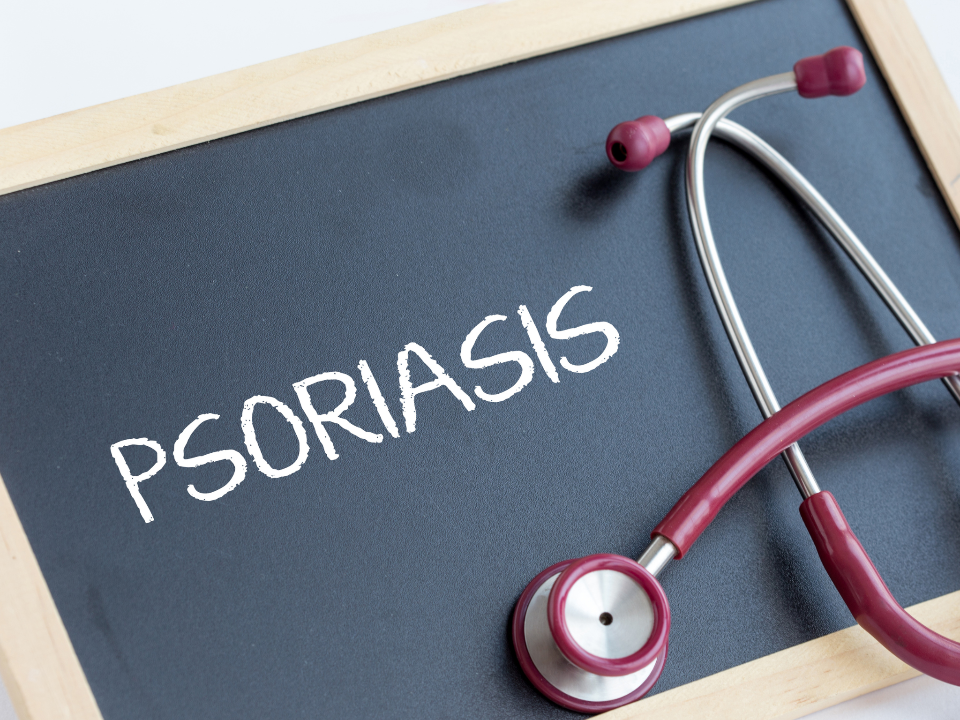Psoriasis Action Month raises awareness about the impact of psoriasis and encourages people to learn more about treatment options, advocate for research, and connect with support communities.
Psoriasis is a chronic skin condition that affects more than 8 million people in the United States. It occurs when the immune system causes skin cells to multiply faster than normal, leading to a buildup of cells that form scaly, inflamed, and itchy patches of skin. While psoriasis is not contagious, it can cause physical discomfort and impact a person’s emotional well-being.
Signs and Symptoms
Psoriasis symptoms can vary in severity, but common signs include:
- Raised, inflamed patches of skin covered with silvery-white scales
- Itching, burning, or soreness in affected areas
- Dry, cracked skin that may bleed
- Thickened or ridged nails (nail psoriasis)
Psoriasis often appears on the scalp, elbows, knees, and lower back, but it can develop anywhere on the body. Symptoms may flare and subside in cycles, sometimes triggered by stress, illness, or weather changes.
Treatment Options
While there is no cure for psoriasis, there are many ways to manage symptoms and reduce flare-ups:
- Topical treatments: Prescription creams, corticosteroids, or vitamin D analogues can slow skin cell growth and reduce inflammation.
- Light therapy (phototherapy): Controlled exposure to natural or artificial ultraviolet light can improve symptoms.
- Systemic medications: For moderate to severe psoriasis, oral or injectable medications can target the immune system to control flare-ups.
Natural Remedies and Lifestyle Tips
Some people find symptom relief through complementary approaches such as:
- Keeping skin moisturized to prevent dryness and cracking
- Taking lukewarm (not hot) baths with Epsom salts or oatmeal
- Managing stress through meditation, gentle exercise, or yoga
- Avoiding triggers such as excessive alcohol, smoking, or harsh skin products
It’s important to discuss any natural remedies with your healthcare provider before starting them, especially if you’re on prescription treatments.
When to See a Healthcare Provider
Seek medical evaluation if your symptoms are severe, spreading, or interfering with daily life. Early treatment can help prevent complications, such as psoriatic arthritis, which can cause joint pain and swelling.
At Marque Urgent Care, our team is here to evaluate skin concerns, provide personalized treatment recommendations, and connect you with dermatology referrals if needed.

Favorite Platform

New Content




